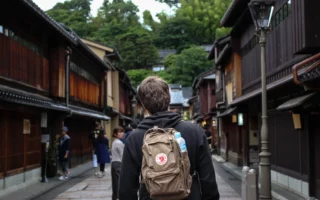Uncuymaza is a term that may not be widely recognized in the mainstream, but it holds significant cultural and historical importance within certain indigenous communities. This ancient tradition, rooted in the deep connection between people and the land, reflects a worldview that values harmony, respect, and sustainability. In this article, we will delve into the origins of Uncuymaza, its practices, and how it continues to influence modern life.
The Origins of Uncuymaza
The concept of Uncuymaza originates from indigenous cultures in South America, particularly among the Andean people. The word itself is derived from the Quechua language, which was spoken by the Inca civilization and continues to be used by millions of people across Peru, Bolivia, Ecuador, and other Andean regions.
Uncuymaza embodies the idea of living in balance with the natural world. It is a philosophy that recognizes the interconnectedness of all living things and the importance of maintaining equilibrium in the environment. This belief system has been passed down through generations and is deeply embedded in the cultural practices, rituals, and daily lives of the Andean people.
The Practices of Uncuymaza
Uncuymaza is more than just a philosophy; it is a way of life. The practices associated with Uncuymaza are diverse and encompass various aspects of life, from agriculture and community organization to spiritual rituals.
- Agriculture and Sustainability
One of the central tenets of Uncuymaza is sustainable agriculture. The Andean people have traditionally relied on farming techniques that work in harmony with the natural environment. This includes the use of terracing to prevent soil erosion, crop rotation to maintain soil fertility, and the cultivation of diverse crops to ensure food security.
The concept of ayni, or reciprocal exchange, is also integral to Uncuymaza. This principle promotes mutual support within the community, where individuals help each other with farming tasks, ensuring that everyone benefits from the collective effort.
- Spiritual Rituals
Uncuymaza is closely tied to spiritual beliefs that honor the Earth as a living being. Pachamama, or Mother Earth, is revered as a deity who provides for the needs of the people. Rituals and ceremonies are conducted to give thanks to Pachamama and seek her blessings for a good harvest, protection, and well-being.
These rituals often involve offerings of food, drink, and other items to Pachamama, symbolizing the people’s gratitude and respect for the natural world. These practices are not only spiritual acts but also reinforce the community’s commitment to preserving the environment.
- Community and Social Structure
Uncuymaza promotes a strong sense of community and social cohesion. The principle of ayni extends beyond agriculture and is applied to various aspects of life, including construction, celebrations, and even conflict resolution. This reciprocal exchange fosters a sense of solidarity and ensures that the needs of the community are met collectively.
The communal approach to life under Uncuymaza also means that decisions are often made collectively, with an emphasis on consensus and the well-being of the entire community rather than individual gain.
The Modern Relevance of Uncuymaza
While Uncuymaza is rooted in ancient traditions, its principles are increasingly relevant in today’s world. As the global community faces challenges such as climate change, environmental degradation, and social inequality, the wisdom of Uncuymaza offers valuable insights into how we might address these issues.
- Environmental Stewardship
The emphasis on sustainability and living in harmony with nature is a cornerstone of Uncuymaza. In an era where environmental concerns are paramount, the practices of Uncuymaza provide a model for sustainable living. The idea of taking only what is needed and giving back to the Earth is a powerful reminder of the importance of environmental stewardship.
Modern movements for sustainable agriculture, conservation, and ecological restoration can draw inspiration from Uncuymaza’s holistic approach to the environment. By adopting practices that prioritize the health of the planet, we can work towards a more sustainable and equitable future.
- Social Equity and Community
Uncuymaza’s focus on community and mutual support is another aspect that resonates with contemporary social movements. In a world where individualism and competition often overshadow cooperation, the principles of Uncuymaza remind us of the value of community, solidarity, and collective well-being.
The concept of ayni, with its emphasis on reciprocity and shared responsibility, offers a blueprint for creating more equitable societies. Whether in the context of economic systems, social services, or community organization, the lessons of Uncuymaza can help foster a more inclusive and supportive world.
- Cultural Preservation
In addition to its environmental and social relevance, Uncuymaza also underscores the importance of cultural preservation. As indigenous communities around the world continue to face challenges such as marginalization and loss of traditional knowledge, the preservation of Uncuymaza and similar traditions is vital.
Efforts to document, share, and revive indigenous practices like Uncuymaza not only help protect cultural heritage but also provide valuable insights into alternative ways of living that can benefit the broader global community.
Conclusion
Uncuymaza is more than just an ancient tradition; it is a living philosophy that continues to offer valuable lessons for the modern world. Its emphasis on sustainability, community, and respect for the natural world provides a compelling alternative to the dominant paradigms of individualism and consumption.
As we navigate the challenges of the 21st century, the principles of Uncuymaza remind us of the importance of balance, reciprocity, and collective well-being. By embracing these values, we can work towards a more harmonious and sustainable future for all.



